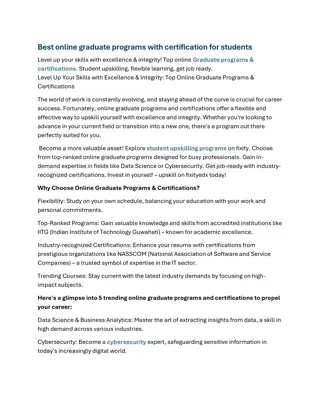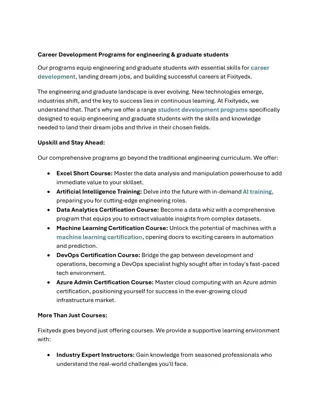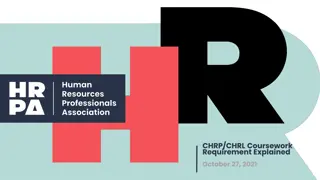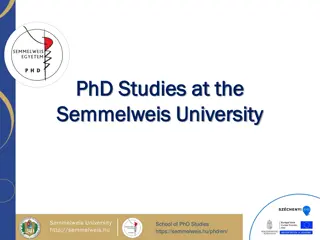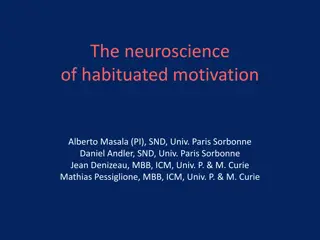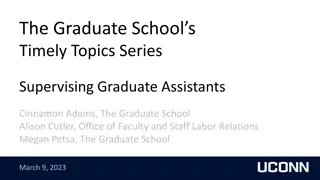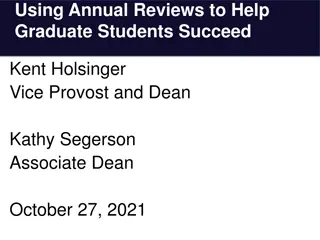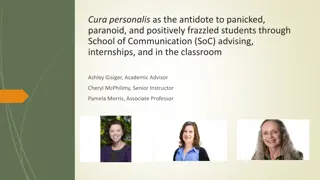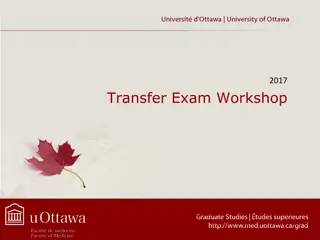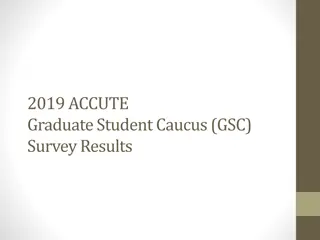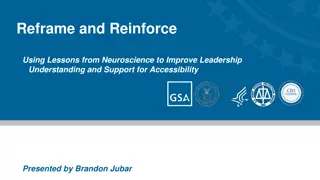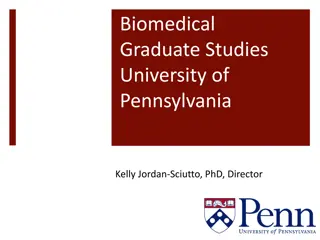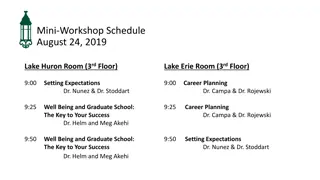
Neuroscience PhD Program Coursework Overview
Explore the typical coursework structure for a Neuroscience PhD program, including required courses, research components, and credit distribution throughout the academic years.
Download Presentation

Please find below an Image/Link to download the presentation.
The content on the website is provided AS IS for your information and personal use only. It may not be sold, licensed, or shared on other websites without obtaining consent from the author. If you encounter any issues during the download, it is possible that the publisher has removed the file from their server.
You are allowed to download the files provided on this website for personal or commercial use, subject to the condition that they are used lawfully. All files are the property of their respective owners.
The content on the website is provided AS IS for your information and personal use only. It may not be sold, licensed, or shared on other websites without obtaining consent from the author.
E N D
Presentation Transcript
C O L L E G E O F L I F E S C I E N C E S Graduate Program in Neuroscience Typical Coursework for PhD Students
Year 1 - Fall Required courses: GC 550 Foundations in Biomedical Sciences (10) GC 760 PhD Laboratory Rotation (3) NS 601 Profiles in Neuroscience Research (1) NS 616 Neuroscience Journal Club (1) NS 710 Neuroscience Seminar Series (1) NS 910 Research (add credits) ( ) = credits * required Fall credits is 20; you make these up by adding credits to Research. Y1/Fall coursework credits = 16.
Year 1 - Winter Required courses: NS 940 Research (add credits) ( ) = credits * required Winter credits is 10; you make these up by adding credits to Research.
Year 1 - Spring Required courses: GC 640 Research Ethics (1) GC 770/780 PhD Laboratory Rotation(s) (3 each) NS 700 Cellular Neurophysiology (4) 1sthalf of Spring semester NS 715 Cellular & Molecular Neuroscience (2) 1sthalf of Spring semester NS 690 Neuropharmacology (2) 2ndhalf of Spring semester NS 745 Advanced Topics in Neurodegenerative Diseases (2) 2ndhalf of Spring NS 626 Neuroscience Journal Club (1) NS 720 Neuroscience Seminar Series (1) NS 920 Research (add credits) * required Spring credits is 30; you make these up by adding credits to Research. Y1/Spring coursework credits = 19.
Year 1 - Summer Required courses: NS 930 Research (add credits) * required Summer credits is 10; you make these up by adding credits to Research.
Year 2 - Fall Required courses: NS 616 Neuroscience Journal Club (1) NS 710 Neuroscience Seminar series (1) NS 530 Neuroanatomy (4) (Neuroanatomy only runs from mid-November to the end of Fall semester and resumes for a few weeks in January) NS 910 Research (add credits) * required Fall credits is 20; you make these up by adding credits to Research. Y2/Fall coursework credits = 6.
Year 2 - Winter Required courses: NS 940 Research (add 10) * required Winter credits is 10; you make these up by adding credits to Research.
Year 2 - Spring Required courses: GC 730 Planning & Writing a Research Grant (1) NS 626 Neuroscience Journal Club (1) NS 720 Neuroscience Seminar Series (1) NS 740 Applied Statistics in Neuroscience (2) NS 920 Research (add credits) *required Spring credits is 30; you make these up by adding credits to Research. Y2/Spring coursework credits = 5. *** Continue participating in both the Neuroscience Journal Club and the Neuroscience Seminar Series every Fall and Spring semester until thesis defense.
Year 2 - Summer Required courses: NS 930 Research (10) PhD students in the GPN Program will take the Comprehensive Examination in the Summer of their 2ndyear (typically in late July/early August).
Important Notes This Typical Coursework allows you to complete all GPN required courses. Therefore, you should be well-equipped to take the Comprehensive Exam in the Summer of Year-2. The JCLS requires 54 coursework credits. This Typical Coursework is worth 49 credits. Credits from Neuroscience Journal Club and Neuroscience Seminar Series will allow you to complete the coursework requirement in Year-3. Nevertheless, you still must continue registering for both the Neuroscience Journal Club and the Neuroscience Seminar Series every Fall and Spring semester until your thesis defense. The GPN Curriculum Committee has generated a list of possible elective courses. We encourage you to consult this list (posted on the GPN website) when considering taking electives. These courses are offered by all graduate programs in the JCLS. Course syllabi and schedules are subject to changes. To obtain detailed current information about the suggested electives, please contact the course directors (names included in the list). Identify yourself as a Neuroscience PhD student when contacting the course directors. Initial coursework in the first two semesters of the GPN (Y1/Fall and Y1/Spring) can be heavy. If you have concerns/questions regarding Research Rotations during the Summer before starting GC550 or during the Y1/Fall semester, please consult the GPN Directors. To promote self-learning in areas not covered by the JCLS Curriculum, we also strongly encourage you to create Independent Study courses. You will need a faculty member that agrees to mentor you and approval from the Dean of the JCLS.


